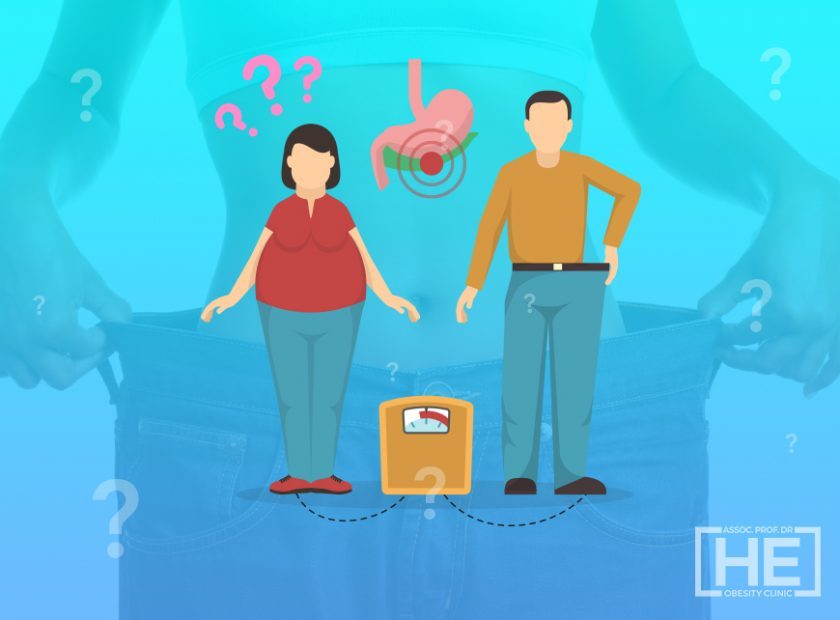Gastric Sleeve Success Rate, Gastric sleeve surgery, also known as sleeve gastrectomy, is a popular weight loss procedure that has been performed for over a decade. The procedure involves the removal of a large portion of the stomach, leaving a smaller, sleeve-shaped stomach in its place. This reduction in the size of the stomach restricts the amount of food that can be consumed and can lead to significant weight loss. But what is the success rate of gastric sleeve surgery and what factors contribute to its effectiveness?
Factors that Influence Gastric Sleeve Success
There are several factors that can influence the success of gastric sleeve surgery, including:
- Patient Compliance
One of the most important factors in the success of gastric sleeve surgery is patient compliance. In order to achieve and maintain significant weight loss, patients must follow the dietary guidelines and lifestyle recommendations provided by their surgeon. This includes adhering to portion control, eating a balanced diet, and engaging in regular physical activity.
- Age and Medical History
The age and medical history of the patient can also influence the success of gastric sleeve surgery. Younger patients with fewer medical problems tend to have better outcomes than older patients or those with multiple health conditions.
- Starting Weight
The starting weight of the patient is another important factor in the success of gastric sleeve surgery. Patients who are significantly overweight are more likely to achieve substantial weight loss than those who are only slightly overweight.
- Postoperative Follow-Up Care
Postoperative follow-up care is crucial to the success of gastric sleeve surgery. Patients must attend regular appointments with their surgeon and make any necessary lifestyle changes to support their weight loss goals.
Gastric Sleeve Success Rates
Gastric sleeve surgery has been shown to be a highly effective weight loss procedure, with success rates ranging from 60-80%. Patients typically lose between 50-60% of their excess weight within the first two years after surgery. Some patients may experience more rapid weight loss, while others may lose weight more slowly.
Maintenance of Weight Loss
Maintaining weight loss after gastric sleeve surgery is an ongoing process that requires ongoing effort and commitment. Patients must continue to follow the dietary guidelines and lifestyle recommendations provided by their surgeon, as well as engage in regular physical activity. Regular follow-up appointments with their surgeon are also crucial to maintaining weight loss success.
Potential Complications
While gastric sleeve surgery is generally considered safe, there are potential complications that can occur, including:
- Leakage
Leakage from the staple line of the stomach is a rare but serious complication of gastric sleeve surgery.
- Staple Line Problems
Staple line problems, such as staple line bleeding or staple line separation, can also occur after gastric sleeve surgery. These complications can cause abdominal pain, vomiting, and other symptoms, and can be serious if not treated promptly.
- Nutritional Deficiencies
Gastric sleeve surgery can lead to nutritional deficiencies, as the stomach is unable to absorb certain vitamins and minerals. Patients must take vitamin and mineral supplements as recommended by their surgeon to avoid these deficiencies.
What percentage of gastric sleeve patients regain weight?
Individuals may have different levels of weight gain after gastric sleeve surgery, and there is no universally applicable proportion. However, research has indicated that a sizable proportion of gastric sleeve patients may eventually experience some weight gain.
Weight regain can be caused by a variety of things, such as unhealthy eating habits, insufficient exercise, hormonal changes, emotional causes, and subpar follow-up care. It is crucial to keep in mind that while gastric sleeve surgery is a tool that aids in weight loss, long-term success depends on establishing and upholding a healthy lifestyle.
Following post-operative instructions, which include eating a healthy, balanced diet, getting regular exercise, and receiving ongoing assistance from medical specialists, is essential for gastric sleeve patients to reduce the risk of weight gain. Having a solid support system and taking care of any emotional or psychological issues that are connected to eating patterns can also help with healthy weight management following surgery.
Conclusion
Gastric sleeve surgery is a highly effective weight loss procedure with a success rate ranging from 80-90%. The success of the procedure is largely dependent on patient compliance, age and medical history, starting weight, and postoperative follow-up care. While there are potential complications that can occur, the majority of patients are able to achieve and maintain substantial weight loss after gastric sleeve surgery. If you are considering gastric sleeve surgery, it is important to discuss the potential benefits and risks




